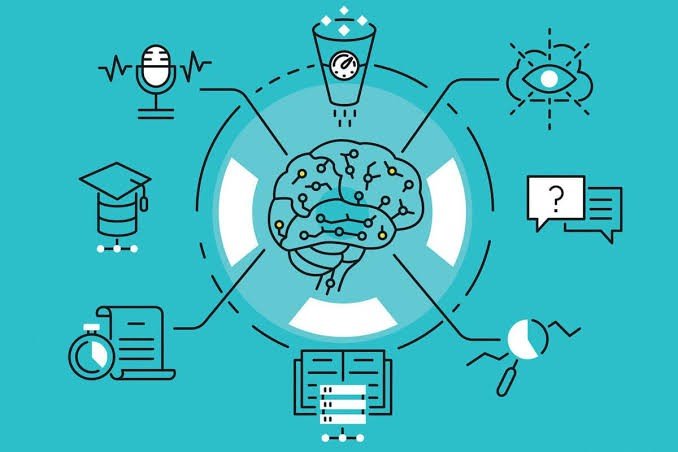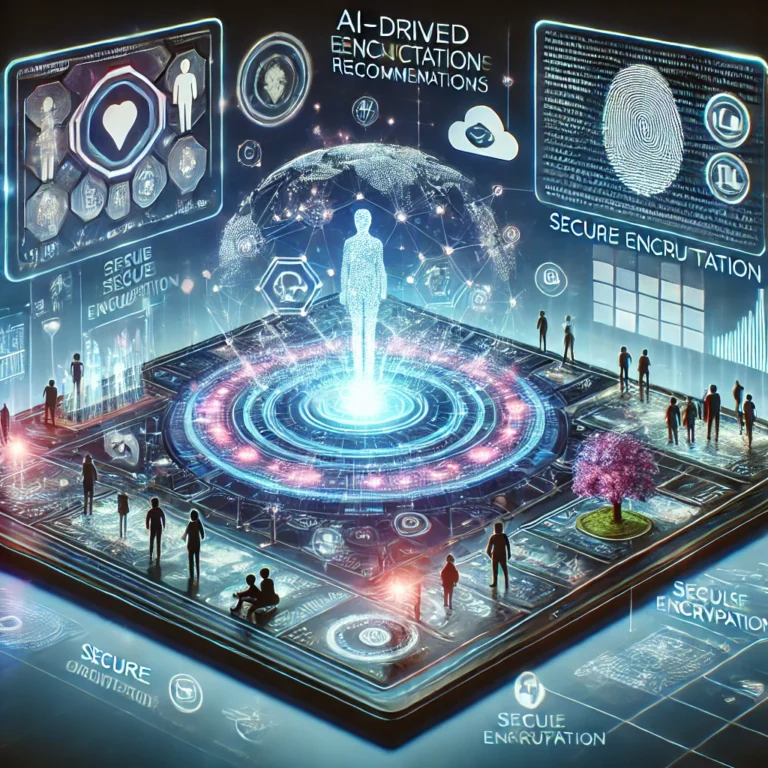Generative AI: Revolutionizing Compliance and Choosing the Right Generative AI Development Company
Generative AI is making waves across industries by transforming the way data is processed, analyzed, and used to create new and innovative solutions. With the growing demand for intelligent automation, Generative AI is emerging as a powerful tool for streamlining business processes. One of the key areas where generative AI is gaining significant traction is compliance. By leveraging AI to ensure that businesses adhere to regulatory requirements, generative AI is becoming essential for organizations looking to stay ahead of the compliance curve. In this article, we’ll explore the role of generative AI in compliance, discuss key use cases, and examine how businesses can choose the right generative AI development company to help them build AI-driven compliance solutions.
What is Generative AI?
Generative AI refers to a subset of artificial intelligence that uses machine learning models, specifically deep learning techniques, to generate new data, such as text, images, or even code. Unlike traditional AI systems that rely on predefined rules and datasets, generative AI models can autonomously learn from large volumes of data and generate novel, contextually relevant output. Generative AI models, such as OpenAI’s GPT, have gained attention for their ability to perform tasks like content creation, image generation, and even code synthesis. Beyond these creative applications, generative AI has the potential to revolutionize industries by automating complex tasks, including compliance monitoring and enforcement.
Why Compliance Matters
Compliance refers to the process of ensuring that an organization adheres to industry-specific regulations, legal requirements, and internal policies. Failure to comply with regulations can result in fines, reputational damage, and operational inefficiencies. As industries become more regulated, particularly sectors like finance, healthcare, and telecommunications, the demand for robust compliance solutions has never been higher. Businesses face an overwhelming volume of regulatory requirements, which can make manual compliance tracking difficult, inefficient, and prone to errors. This is where generative AI for compliance steps in to simplify and automate the process.
Generative AI for Compliance: Transforming Regulatory Adherence
Generative AI for compliance offers the potential to automate large portions of the compliance workflow, from regulatory tracking to reporting and documentation. It can enhance existing processes and make compliance teams more efficient by providing real-time insights and automated decision-making capabilities. Here are several key areas where generative AI is transforming compliance:
1. Regulatory Documentation Generation
One of the key applications of generative AI in compliance is in the creation of regulatory documentation. Manually drafting compliance reports, contracts, and other documents can be time-consuming and prone to errors. Generative AI can automate this process by generating precise, regulation-compliant documents based on the latest legal requirements.
Key Benefits:
Reduced Human Error: Automating document generation reduces the chances of inaccuracies and ensures that documents are consistently aligned with current regulations.
Efficiency:
Compliance teams can save significant time by automating routine tasks like contract creation and report generation.
Scalability:
Generative AI can process large datasets and create multiple documents simultaneously, making it ideal for organizations dealing with high volumes of regulatory paperwork.
2. Automated Risk Assessment
Compliance often requires organizations to assess risks based on regulatory guidelines. Generative AI can analyze vast amounts of internal and external data, identify potential risk factors, and provide recommendations to mitigate those risks. By using natural language processing (NLP) techniques, generative AI can parse legal texts and regulations to extract key risk indicators and evaluate their potential impact on the organization.
Key Benefits:
Real-Time Risk Monitoring:
AI can provide real-time updates on changes in regulatory requirements, enabling organizations to adjust their strategies and stay compliant.
Comprehensive Risk Analysis:
AI models can analyze historical data, regulatory frameworks, and market conditions to deliver a comprehensive risk assessment.
Proactive Compliance Management:
Generative AI can predict compliance risks before they become issues, enabling proactive mitigation strategies.
3. Compliance Audits and Reporting
Regulatory audits are a crucial part of compliance, but they can be time-consuming and complex. Generative AI can assist by automating the generation of audit reports and ensuring that all required data is available and structured correctly. AI can also simplify reporting by generating reports that align with regulatory requirements and automatically updating them as regulations evolve.
Key Benefits:
Streamlined Auditing:
Generative AI can automate repetitive tasks involved in compliance audits, such as data extraction and report generation.
Accurate and Up-to-Date Reporting:
AI can ensure that all reports are consistently aligned with the latest regulations, improving accuracy.
Continuous Monitoring:
AI-powered systems can provide ongoing compliance monitoring and flag potential violations before audits take place.
4. Regulatory Change Management
Regulatory landscapes are constantly evolving, and staying up-to-date with changes can be challenging. Generative AI can monitor regulatory changes and automatically update compliance frameworks to ensure that an organization is aligned with the latest guidelines. This reduces the burden on compliance teams and minimizes the risk of non-compliance.
Key Benefits:
Automated Tracking of Regulations:
Generative AI can monitor and interpret new regulations and policies, ensuring that organizations are aware of any updates.
Regulatory Alignment:
AI can help organizations quickly adjust to regulatory changes by providing actionable insights and recommended compliance measures.
Scalable Compliance Frameworks:
AI systems can scale with the complexity of an organization’s operations, allowing businesses to maintain compliance as they grow.
5. Fraud Detection and Prevention
Compliance with anti-fraud regulations is essential for industries such as banking, insurance, and e-commerce. Generative AI can help by analyzing transaction data, customer behavior, and other patterns to detect and prevent fraudulent activities. These AI models can flag suspicious transactions in real-time, enabling organizations to respond quickly and reduce the risk of fraud.
Key Benefits:
Real-Time Detection:
Generative AI can monitor transactions and flag potential fraud cases in real time, allowing for immediate intervention.
Predictive Analysis:
AI can predict fraudulent behavior based on historical data and trends, helping organizations stay ahead of emerging threats.
Enhanced Security:
AI-powered fraud detection enhances security measures and ensures compliance with industry-specific anti-fraud regulations.
How to Choose the Right Generative AI Development Company
With the increasing importance of generative AI for compliance and other applications, selecting the right generative AI development company is crucial for success. Here are some essential factors to consider when choosing an AI development partner:
1. Industry-Specific Expertise
Different industries have unique compliance requirements and challenges. It’s essential to choose a development company with a deep understanding of your industry’s regulatory environment and specific compliance needs.
Key Considerations:
Experience in Your Industry: Look for a company with experience in developing AI solutions for compliance in industries such as finance, healthcare, or telecommunications.
Proven Track Record:
Evaluate the company’s portfolio to ensure they have successfully developed AI-powered compliance solutions for businesses similar to yours.
2. Technical Expertise in Generative AI
Generative AI is a complex field, and not all AI development companies have the technical expertise to deliver effective solutions. Ensure that the company you choose has a team of skilled data scientists, machine learning engineers, and AI specialists who can build sophisticated generative AI models tailored to your needs.
Key Considerations:
Machine Learning Expertise:
Ensure the company has expertise in machine learning, deep learning, and natural language processing (NLP) to build robust AI models.
Generative AI Frameworks:
The company should have experience with popular generative AI frameworks like GPT-3, DALL-E, and others.
3. Customization and Flexibility
Every business has unique compliance requirements, and a one-size-fits-all solution may not be effective. The right AI development company should be able to offer customized AI solutions that are tailored to your specific compliance challenges.
Key Considerations:
Tailored Solutions:
Ensure the company is willing to customize its AI offerings based on your business needs, rather than offering generic solutions.
Scalability:
The AI solution should be scalable and able to adapt to changing business needs or increasing regulatory complexity.
4. Collaboration and Transparency
Successful AI implementations require close collaboration between the development team and the business. Look for a company that emphasizes transparency, communication, and partnership throughout the development process.
Key Considerations:
Ongoing Collaboration:
Choose a company that works closely with your team, provides regular updates, and involves you in key decisions during the development process.
Post-Deployment Support:
Ensure the company offers post-deployment support and maintenance to ensure your AI solution remains compliant as regulations evolve.
5. Data Privacy and Security
Given the sensitive nature of compliance data, it’s crucial to choose a development company that prioritizes data privacy and security. The company should have strict data protection measures in place and comply with relevant privacy regulations.
Key Considerations:
Data Security Practices:
Ensure the company follows industry best practices for data security, such as encryption, access control, and regular security audits.
Compliance with Data Regulations: The company should be familiar with data protection regulations such as GDPR, CCPA, and HIPAA and ensure that its AI solutions comply with these laws.
6. Cost vs. Value
While cost is a significant factor in choosing a generative AI development company, it’s essential to consider the long-term value of the solution. Look for a company that offers competitive pricing without compromising on the quality of its AI development.
Key Considerations:
Cost Transparency: Ensure the company provides clear pricing structures and avoids hidden fees.
Return on Investment ROI:
Consider how the AI solution will improve your compliance processes, reduce risks, and deliver long-term value.
Conclusion
Generative AI is transforming how businesses approach compliance by automating regulatory documentation, risk assessment, auditing, and fraud detection. To fully leverage the power of generative AI for compliance, businesses must choose the right AI development company that understands their industry, offers technical expertise, and provides customized, secure solutions.
By investing in a reliable generative AI development partner, businesses can not only streamline their compliance efforts but also stay ahead of regulatory changes and reduce risks. As generative AI continues to evolve, its applications in compliance will become even more vital, making it a critical tool for businesses across industries.







